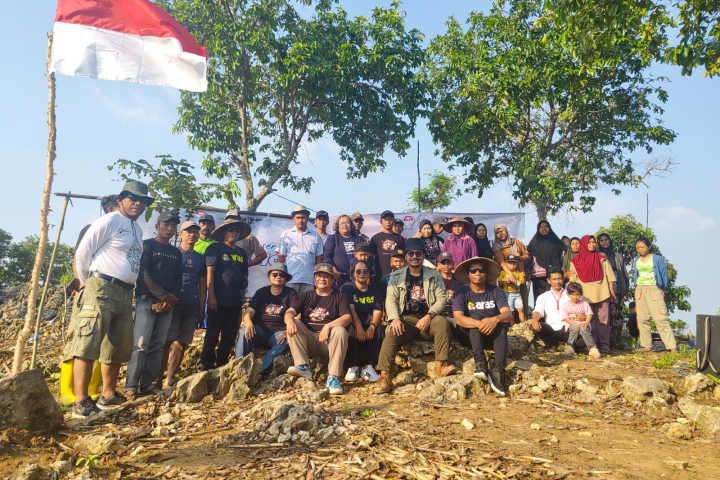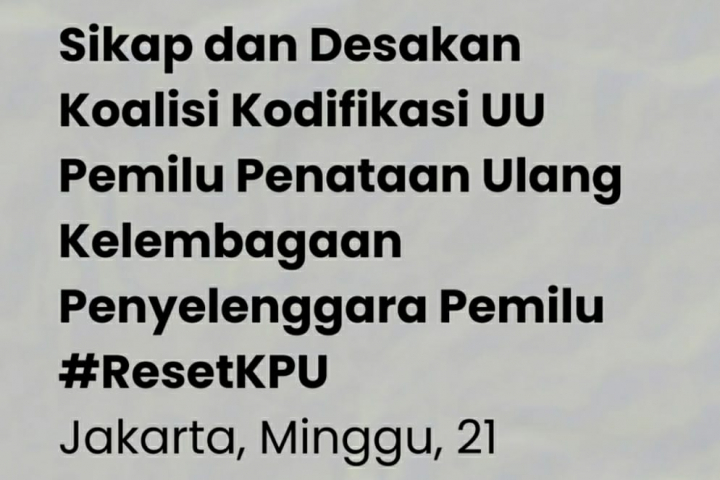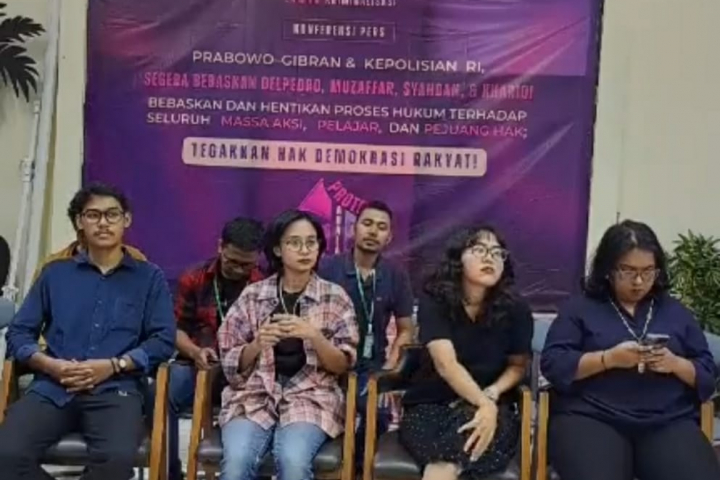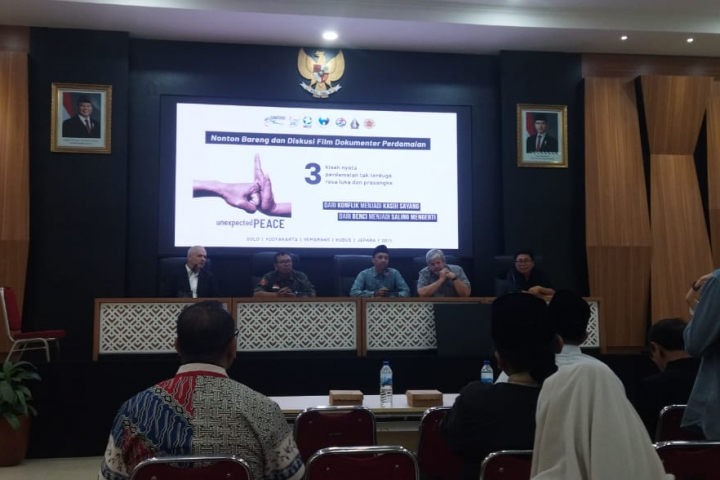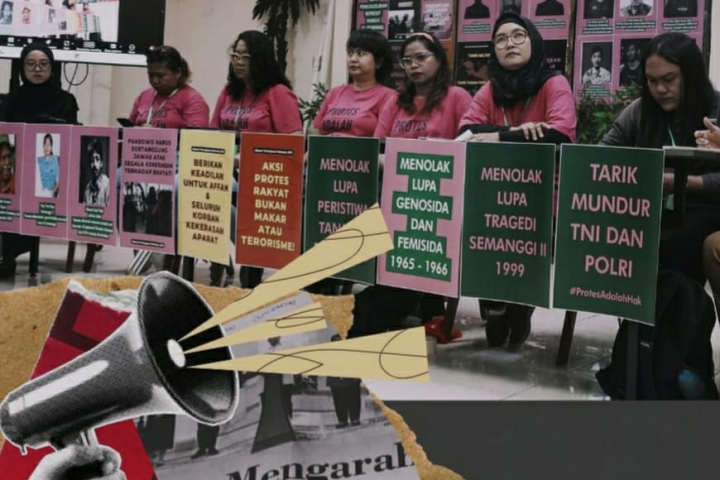The Land of Pajangan: The Indonesian National Anthem- Three Stanza and KOMPAK Peasant Day
- YAPHI
- Suara Keadilan
- Hits: 323
That day, at 14.00 on Tuesday (23/9), a team of from Yayasan YAPHI arrived at Sucipto’s house, the chairperson of Peasant group in South Pati (KOMPAK) in Dukuh Tumpang (Hamlet), Porang-Paring Village, Pati. As planned, they were going to celebrate the National Peasant Day at a site which local peasants worked on. They call it "tanah pajangan" or the Land of Pajangan – about 500 meters from Sucipto’s house.
Add a commentElection Law Codification Coalition: View and Demand for Re-arrangement of Election Institution #ResetKPU
- YAPHI
- Suara Keadilan
- Hits: 253
Jakarta Sunday, 21 September 2025. The Election Commission canceled its Decision No. 731 Year 2025 on Required Documents for Presidential and Vice Presidential Candidates as Exception to Public Information in Jakarta on 16 September 2025, through a pres conference and a Decision Letter No. 805.
Add a commentPress Conference – Lawsuit Registration re. Statement by Fadli Zon on Denial of Mass Rape in May 1998
- YAPHI
- Suara Keadilan
- Hits: 239
The Civil Society Coalition against impunity submitted a lawsuit against the Cultural Minister Fadli Zon to the Jakarta Civil Court on Thursday (11/9/2025). The lawsuit is about the statement made by Fadli who denied that mass rape ever happened in May 1998 and de-legitimated the Joint Fact Finding Task Force work regarding the May 1998 incident.
Add a commentYPLAG (Inter-Religion and Ethnic Group Foundation): “Unexpected PEACE” Film Screening and Discussion
- YAPHI
- Suara Keadilan
- Hits: 333
There was a screening of “Unexpected PEACE” film by YPLAG, MCC and others at the Joint Secretariat in Surakarta on Saturday, 13 September 2025. Asia (the City of Surakarta) of all continents (America, Europe, and Africa) became the first to screen the film.
Add a commentThe Indonesian Women Alliance or Aliansi Perempuan Indonesia (API) at a Black September Anniversary: PROTEST WAS A RIGHT
- YAPHI
- Suara Keadilan
- Hits: 550
Wednesday, 10 September 2025
Protest is women’s right and all citizens’ right. Yet to date, those protesting the State policies on the street are detained in Police cells. During protests on 25 Agustus to 1 September 2025, 10 people died, 3,337 people detained by the Police, 1,042 people were injured and rushed to hospitals, 20 of the 23 people were still missing, and 60 violence cases against journalists. President Prabowo Subianto did not respond to people’s demand, instead he promoted those Police officers involved in violence while labelling the protests as “act of terrorism and rebellion” without extending any apologies to families of victims killed by the Police. Not only that, security officers also conducted sweeping in campuses and detaining students.
Add a comment- Statement of Position Yayasan YAPHI
- Note Working Group Meeting on District Disability Action Plan in Central Java (1)
- The Government of Surakarta City Celebrates National Children’s Day – Towards Excellent Children, Strong Indonesia Leading to Golden Indonesia 2045
- Solo Inclusion Vision Network and YAPHI Opens Volunteer Classes, As an Answer towards Minimum Sensitivity towards Disability




